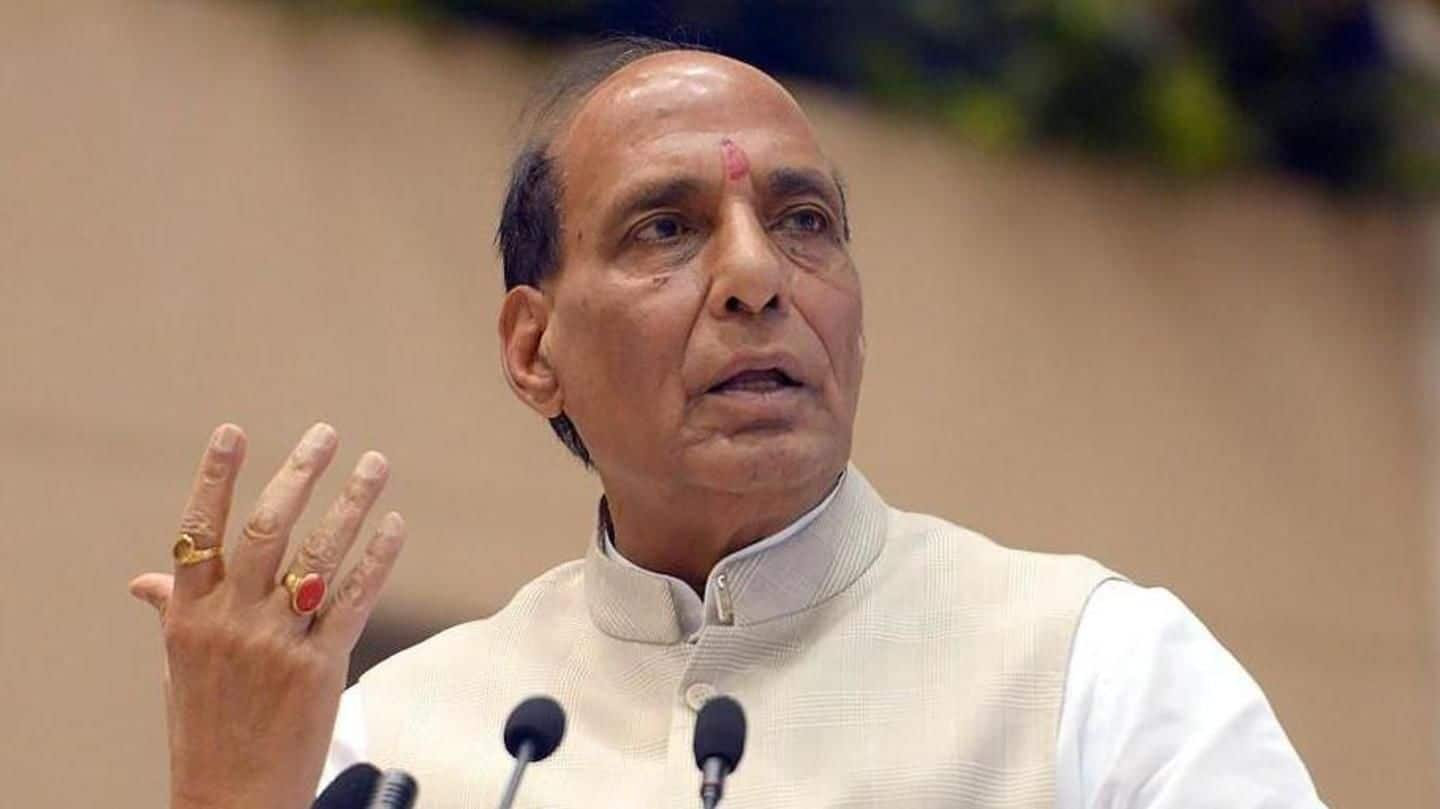
Youth's radicalization, the most challenging problem in world: Home Minister
What's the story
Addressing the fourth counter-terrorism conference titled "Changing Contours of Global Terror", Home Minister Rajnath Singh said that radicalization of the populace, particularly youths, is one of the most challenging problems the world is facing currently.
Without taking Pakistan's name, he said some countries are providing sponsorship and safe havens to terrorists, which played a major role in the phenomenal growth of terrorists globally.
Attacks Stopped
India prevented terrorist attacks on her soil: Rajnath
"Several countries in the world have identified the problem and have taken measures to check and control the process of radicalization, and I am happy to state that India has timely busted some modules that were planning to orchestrate terrorist attacks on her soil," Rajnath said.
Singh said with the rise of armed terror-groups, the perception of global terrorism has undergone a massive makeover.
Quote
Rise of armed terror groups, a serious concern to India
"This phenomenon (rise of armed terror groups) could be attributed to the diminishing control in terror space of the Al-Qaeda leadership. The shift of AQ Network from the Middle East to South Asia is a phenomenon, which is of serious concern to India," Singh said.
Tie-up
A new dimension of terrorism: Underworld criminals tie-up with terrorists
The Home Minister said a new dimension of terrorism is the networking of terrorist groups with the criminal underworld including organized crime gangs, gunrunners, smugglers, drug peddlers, with hawala and parallel banking channels being used for global flows of finance.
"It has enabled global terrorist groups to use the infrastructure and terrain knowledge of local outfits for launching attacks in countries," Rajnath said.
Close watch
Govt is closely monitoring the growth of ISIS
"The government is closely watching ISIS's growth and their ways of using social media as a key tool for ideological indoctrination, recruitment, and networking by targeting young generation and intellectual Muslims," Singh said.
He said "the potential threat posed by ISIS" is the large-scale "radicalization of Muslim youths throughout the world," adding, "The terror attacks in Australia and France are such examples of threat."
Unaffected
India is unaffected by the ISIS: Rajnath
Singh said ISIS propaganda has significantly altered jihadi discourse in India, which, so far, was rooted in grievances against the Indian state and society.
"I am, however, happy that Indian social fabric has not been affected by the emergence of the Islamic State and I am sure this will not have any further impact in our country," he said.